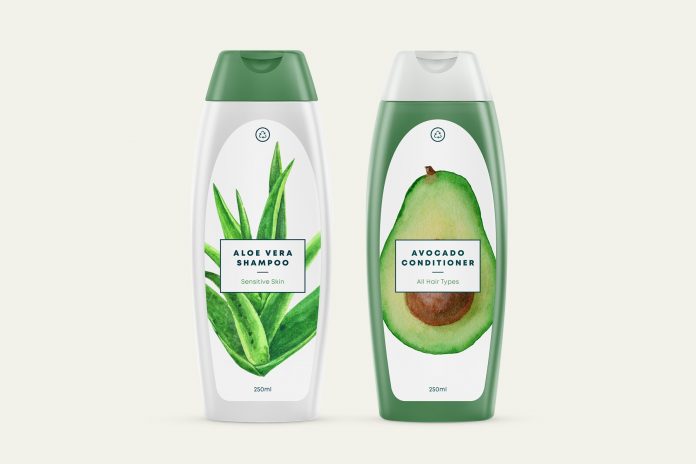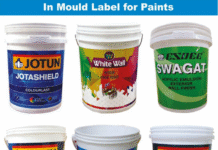
RecyClass has approved products from Avery Dennison’s film portfolio for complying with HDPE recycling guidelines. Label producers and brand owners across the home and personal care and food sectors will benefit from this accomplishment, which can help them increase recycling rates.
Currently, RecyClass guidelines state that for packaging to be fully recyclable, the polyethylene (PE), machine direction oriented (MDO) or polypropylene (PP) label must be removable through the “cold wash” process, which uses water heated to 40°C. This is the most common method of recycling high-density polyethylene (HDPE) packaging in Europe, but labels that can be removed at this temperature can also come off during normal use, like when a shampoo bottle is taken in the shower.
Avery’s self-adhesive materials granted approval based on RecyClass specifications
Avery Dennison‘s PE White, MDO White, and PP Clear labels, which feature a permanent acrylic adhesive and remain in place during a cold wash, were approved by RecyClass after extensive independent testing. The self-adhesive materials have limited compatibility with RecyClass’s relevant HDPE recycling guidelines and will also have a limited impact on the current European colored HDPE container recycling process, providing that the complete packaging is designed according to conditions specified by the organization. Approval is granted based on meeting RecyClass specifications for label size, ink coverage, and adhesive, among other factors.
According to Rob Groen in ‘t Wout, marketing director for paper and films at Avery Dennison, “Our film portfolio consists of clear and white polyethylene (PE), machine direction oriented (MDO), and polypropylene (PP) films made with pressure-sensitive emulsion acrylic adhesives. Having these aligned with RecyClass guidelines will make it easier for brands and label producers to boost recycling rates and ensure HDPE packaging gets a second life. Currently, we are conducting further independent tests with the aim of having our complete portfolio approved.”
The technical letters for PE, MDO, and PP are available on the RecyClass website.
Avery Dennison Corporation (NYSE: AVY) is a global materials science and manufacturing company specializing in the design and manufacture of a wide variety of labeling and functional materials. The company’s products, which are used in nearly every major industry, include pressure-sensitive materials for labels and graphic applications; tapes and other bonding solutions for industrial, medical, and retail applications; tags, labels, and embellishments for apparel; and radio-frequency identification (RFID) solutions serving retail apparel and other markets. Headquartered in Glendale, California, the company employs approximately 32,000 employees in more than 50 countries. Reported sales in 2020 were US$ 7.0 billion (approximately Rs 51,114 crore).










